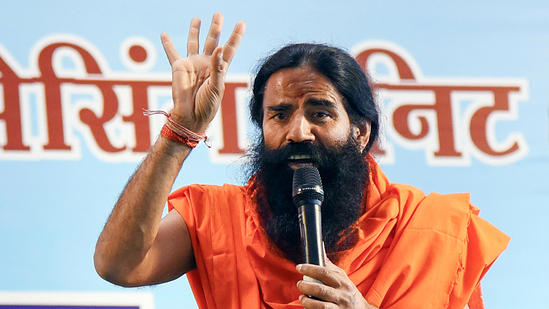Delhi High Court Criticizes Ramdev Over ‘Sharbat Jihad’ Remark Targeting Rooh Afza, Calls It Shocking and Indefensible
In a major development that has stirred both legal and public discourse, the Delhi High Court strongly criticized yoga guru and Patanjali founder Ramdev for his controversial “sharbat jihad” remarks allegedly targeting Hamdard Laboratories’ iconic beverage Rooh Afza. The court labeled the statements as “indefensible” and ones that “shock the conscience of the court”, during a hearing on Tuesday. The remarks, which have been widely circulated online, drew severe criticism for allegedly creating communal disharmony and disparaging a competitor under the guise of marketing.
The controversy erupted following a video shared by Patanjali Products on Facebook, in which Ramdev likened cold drinks to toilet cleaners and accused a sharbat-selling company — implicitly referring to Hamdard — of funding the construction of mosques and madrasas through its sales. He called this practice “sharbat jihad”, drawing parallels to controversial terms like “love jihad” and “vote jihad”. According to Ramdev, while the consumption of such sharbats supports religious institutions associated with Islam, Patanjali’s rose sharbat contributes to the growth of gurukuls, Acharyakulam, Patanjali University, and the Bharatiya Shiksha Board.
These remarks prompted Hamdard Laboratories to move the Delhi High Court, asserting that the comments were defamatory and communally charged. Senior advocate Mukul Rohatgi, appearing for Hamdard, stated that this case went beyond mere brand disparagement and constituted hate speech, thus not qualifying for protection under defamation laws. He emphasized that such content should not be allowed to circulate even momentarily, citing the existing social and communal tensions in the country.
Justice Amit Bansal echoed these sentiments, expressing deep dismay over the remarks. The court warned Ramdev’s legal team that unless a corrective stance was adopted, a strict judicial order would follow. In response, senior advocate Rajiv Nayar, representing Ramdev, assured the court that all advertisements, videos, and social media posts related to the contentious “sharbat jihad” comments would be taken down immediately.
The court recorded this assurance and directed Ramdev to submit an affidavit within five days, affirming that he would refrain from issuing any similar statements, advertisements, or social media content in the future concerning competing products. The matter is now scheduled for further hearing on May 1.
Amidst the legal proceedings, Ramdev defended his stance publicly, stating that he did not name any specific brand or community. He added that those who took offense must have associated themselves with the remarks voluntarily. “If they are dedicated to Islam and are building masjids and madrasas, then they should be happy,” he said, further adding that Sanatanis should also be aware of where their money goes.
The controversy has also drawn political attention. Senior Congress leader Digvijaya Singh approached the TT Nagar police station in Bhopal, seeking registration of an FIR against Ramdev under sections 196(1)(a) and 299 of the Bharatiya Nyay Sanhita, along with provisions of the Information Technology Act. These sections address promoting enmity between different groups and deliberate acts intended to outrage religious sentiments.
In his police complaint, Singh flagged the same video posted on Ramdev’s X (formerly Twitter) account, accusing him of trying to provoke communal sentiments to boost the sales of Patanjali products. He asserted that such content, masquerading as promotional material, effectively serves as hate speech.
As the legal and political dimensions of the case unfold, the incident has triggered a wider debate on the boundaries of competitive advertising, religious sensitivity, and the ethical responsibilities of public figures. With both the judiciary and political leaders taking a stern view of the issue, this case could set a significant precedent on the regulation of speech in commercial contexts in India.
For video news, visit our YouTube channel THE OLIGO.

